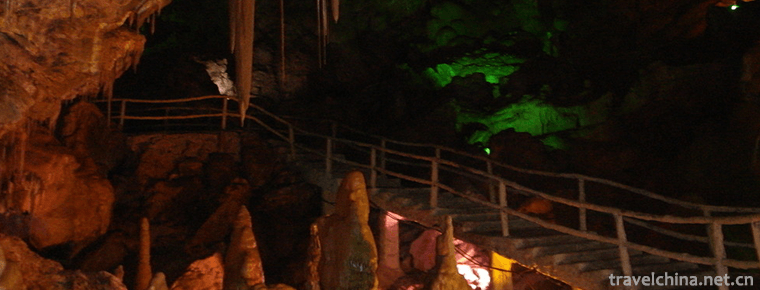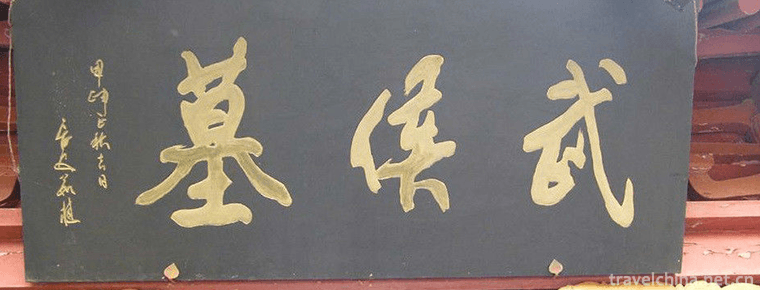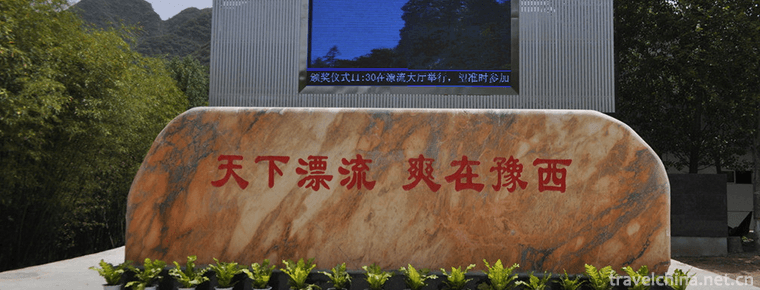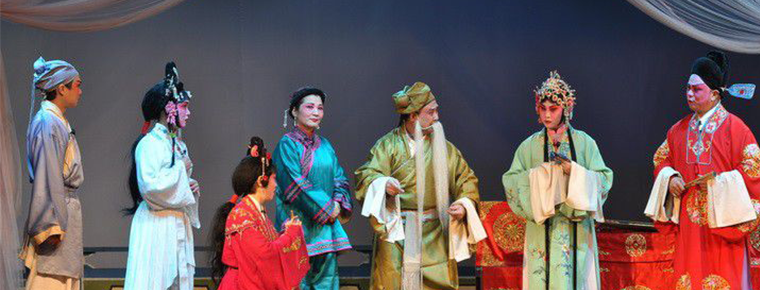Valorafo Festival of the Qiang Nationality
Valorafo Festival of the Qiang Nationality
The "Valorafo Festival of the Qiang Nationality", known in Chinese as the "Song Fairy Festival" or "Leading Song Festival" and "Song Invitation Festival", is a traditional custom held by Qiang women to worship Sister Salang, the goddess of singing and dancing in heaven. Because this activity is mainly hosted and operated by women, the local people also call it "Women's Day".
On May 20, 2006, the Qiang Valorafo Festival declared by Aba Tibetan and Qiang Autonomous Prefecture of Sichuan Province was listed in the first batch of national intangible cultural heritage list with the approval of the State Council
cultural background
The Qiang people, who call themselves the Erma people, are one of the oldest nationalities in China. They were recorded in oracle bone inscriptions as early as. Living in the mountains is called the ethnic group on the clouds. It mainly lives in Maoxian, Wenchuan, Lixian, Songpan, Beichuan Qiang Autonomous County and Pingwu County in Aba Tibetan and Qiang Autonomous Prefecture of Sichuan Province.
Situated in Xihuzhai and Hexi villages of Qugu Township in the north of Maoxian County, this custom has been spreading for thousands of years. In order to worship Sister Salang, the goddess of singing and dancing in heaven, every year on the fifth day of May in the lunar calendar, she boards the Goddess Liangzi and holds the "Waluozu" activity, commonly known as the "Song Fairy Festival" or "Leading Song Festival" in Chinese. Because it is a custom activity completely attended by Qiang women, it is also called "Qiang Women's Day".
Origin of Festivals
Valorafu is an ancient traditional festival of the Qiang nationality, which is mainly hosted and organized by women. It originated from the religious culture of the polytheism worship of the ancient Qiang nationality. At the end of Qin Dynasty and the beginning of Han Dynasty, the Qiang people migrated from Hehuang to settle in the middle and upper reaches of Minjiang River. In the long-term development of nomadic and farming culture, they gradually formed the "Valoazu" with unique folk connotation, which today takes the prayer and singing goddess Sister Salang as the main line.
Major activities
During the festival, all women in Benzhai, regardless of age and age, wear bright local ethnic costumes and wear silver jewelry to attend, the atmosphere is very warm.
The main activities of the Walrus Football Association are as follows:
1. The activity procedure of the night before "Walo Foot": women gathered around the fire hall to make sun steamed buns, moon steamed buns and mountain steamed buns (accompanied by uncle); uncle's opening altar, congratulations; and making offerings.
2. The activity procedure of "ValorFoot" day: go to the goddess Liangzi to worship (led by uncle); hold the ritual of sacrificing and killing goats; uncle sings sutras, rewards gods and prays for gods; lead singing and dancing; the prestigious old mother in the village tells the story of Sister Sharon, the goddess of singing and dancing, so that people can make clear the traditions of love, fertility and housework; men cook and serve beside; transmit songs and dances.
On the third day of May of the lunar calendar, the head of the Congress organized several clean-up women, holding incense, wax, wine, cedar, steamed bun, knife head and other tributes, to march to the stone pagoda of the goddess Liangzi to worship Sister Salang, the goddess were invited to sing and dancing, which was called the "lead song". Returning to the village and informing each household of the information is called "receiving songs". On May 4th, women busily prepare delicious food for the next day, while unmarried women prepare hand-embroidered gifts for their lover. In the early morning of the fifth day, in the morning sunrise, the dusty Chongyang wine was opened to bless the whole village with two flourishing livestock and five bumper grains. Salang is the main content of the activity. Salang is led by the elderly women, and then one by one, he teaches singing and dancing to the next generation. Men were accompanied by singing and dancing, and served with bacon, wine, steamed buns and other foods. Intermittent activities, married women to young women to teach sexual knowledge, housekeeping and other knowledge. Or a lover walks in a whisper; or a woman laughs at each other. Tired, women sit in groups in twos and threes, tasting delicious food, drinking and drinking, laughing about life. The whole festival lasts for three days. During the three-day festival, the women showed their best, dancing Salang without feeling. Farming and housework were run by the male Qiang people.
According to the traditional rules of "Valorafo", if there were women aged 13 to 50 who died in Benzhai, there would be no "Valorafo" in that year.
The involvement of uncles in the activities of the Walrus Football Association from beginning to end reflects the characteristics of the Qiang women's group activities and the great power of their mothers and uncles in ancient times. It has a strong vestige of primitive matrilineal worship, and has an important research value in understanding the cultural connotation of the ancient Qiang nationality, goddess worship and female customs. The way of inheritance of Valorafu has great research value and positive effect on the ancient folk culture and art of the Qiang nationality, especially on the development and evolution of the Qiang folk dance Salang.
Inheritance value
From ancient times to today, the Qiang nationality has left a deep cultural accumulation in thousands of years, which is very rare in the history of Chinese and world nationalities. Therefore, it becomes a living specimen for the study of history and culture, and has irreplaceable important value in the history of world national evolution and cultural evolution.
From the historical process of its formation and development, the traditional festival of Waluozu is closely related to the history, traditional culture and ancient matriarchal worship customs of the Qiang nationality. As one of the oldest nationalities in China, the Qiang nationality has a long history and splendid culture. In the course of thousands of years of national history, many ancient folklores and their national history are only scattered in ancient Chinese classics due to the absence of native language. The Walrus Football Association has been inherited by the people and retained the unique folk culture inherent in the ancient Qiang Dynasty.
Valuerzu is a comprehensive folk festival with women as the main part. It integrates singing and dancing, diet, religion, custom, costume and architecture. It can reflect the general outline of Qiang culture more completely. It occupies an important position in Qiang folk culture and has high research and ornamental value. In the historical development and inheritance so far, there is no exception in the Qiang nationality inhabited areas, which is really rare. Through the study of the Valorafo festival of the Qiang nationality, we can have a deep understanding of the religious and cultural connotation of the ancient Qiang nationality, which is of great value to the study of the Qiang goddess worship customs, folk songs, primitive dances, education and so on.
The State attaches great importance to the protection of intangible cultural heritage. On May 20, 2006, the folklore was approved by the State Council and listed in the first batch of national intangible cultural heritage lists.
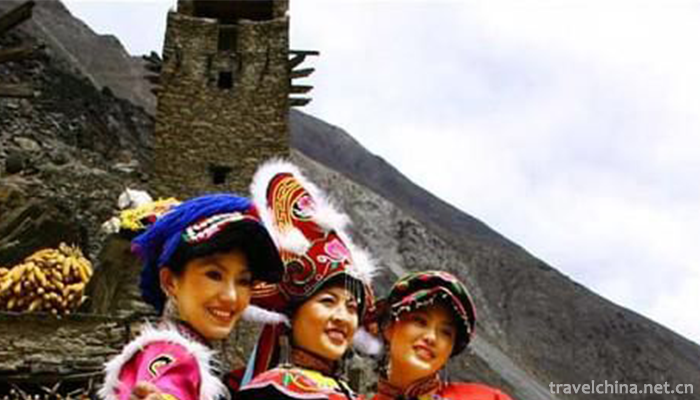
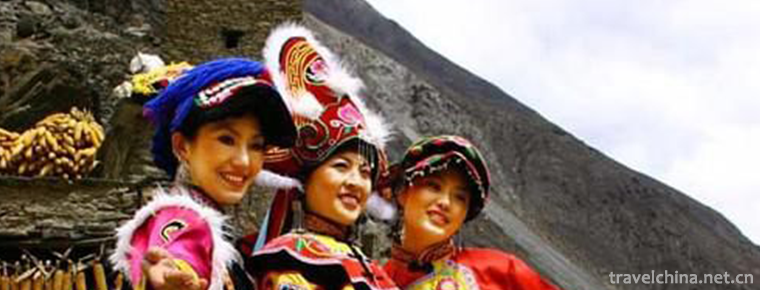
Valorafo Festival of the Qiang Nationality
-
Alipay
Alipay (China) Network Technology Co., Ltd. is the third party payment platform in China. It is committed to providing a simple, safe and fast payment solution
Views: 236 Time 2018-11-13 -
Mandarin Oriental Hotel Guangzhou
Wenhua Oriental Hotel is located in Tianhe District of Guangzhou, which belongs to Wenhua Oriental Hotel Group. It is a five-star hotel. The hotel has 233 rooms and 30 suites, and 24 hotel-style servi
Views: 233 Time 2018-12-16 -
Wanxiang Karst Cave
Vientiane Cave, the national AAAA-level tourist attractions, provincial geological parks, provincial scenic spots and provincial cultural relics protection units
Views: 152 Time 2018-12-17 -
Wuhou Tomb Scenic Area
The Tomb of Marquis Wu is the tomb of Zhuge Liang, a famous statesman and militarist in the Three Kingdoms Period. It is located at the foot of the ancient battlefield of Dingjunshan
Views: 199 Time 2019-02-24 -
Western Henan Grand Canyon
Western Henan Grand Canyon Scenic Spot is located in the west of Henan Province, which refers to the area west of Zhengzhou, the capital of Henan Province, including Luoyang
Views: 99 Time 2019-03-09 -
Jingzhou Huagu Opera
Jingzhou Huagu Opera, a local traditional drama in Hubei Province, is one of the national intangible cultural heritage.
Views: 175 Time 2019-05-08 -
Manchu Ergui wrestling
Ergui wrestling is a traditional Manchu folk dance spread in the urban and rural areas of Longhua County, Hebei Province. It was formed in the late Qing Dynasty (around 1820 A.D.) and flourished betwe
Views: 125 Time 2019-05-17 -
Guiyuanlin Zhangba Luzhou
Longan forest in Zhangba, Luzhou is a genetic Bank of Longan Germplasm in inland China. As the most concentrated longan plantation with a history of more than 100 years, it is as valuable as giant panda in zoology.
Views: 197 Time 2020-10-16 -
Zhenwu mountain ancient Temple Group
Zhenwu mountain ancient Temple group is located in the urban area of Yibin City, adjacent to Cuiping mountain, with an altitude of 396 meters. It is named for Zhenwu temple on the mountain, covering an area of more than 50 mu.
Views: 238 Time 2020-10-16 -
Leshan post and Telecommunications
By the end of 2018, there were 253 post offices in Leshan City, with an average of one postal service network for every 50.29 square kilometers and 12900 people. There are 79 postal routes in the city, with a total length of 3490 km. There are 158 urban delivery routes
Views: 355 Time 2020-12-17 -
Main scenic spots in Meishan
Jiulongshan Forest Park is located in the southwest of Sichuan Province, in Yangchang Town, Danling County, Meishan City, about 20km away from Danling county. It covers an area of 380 hectares, including 100 hectares of core scenic area. The a
Views: 162 Time 2020-12-18 -
Dazhou landform
The terrain of Dazhou city is high in the Northeast (Daba Mountain Area) and low in the Southwest (Basin hilly area). The highest point is datuanbao, Jichang Township, Xuanhan County, with an altitude of 2458.3 meters; the lowest is Tianguan village, Wan
Views: 128 Time 2020-12-20


